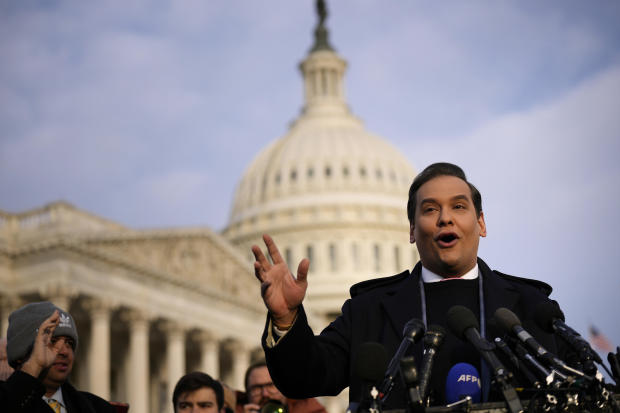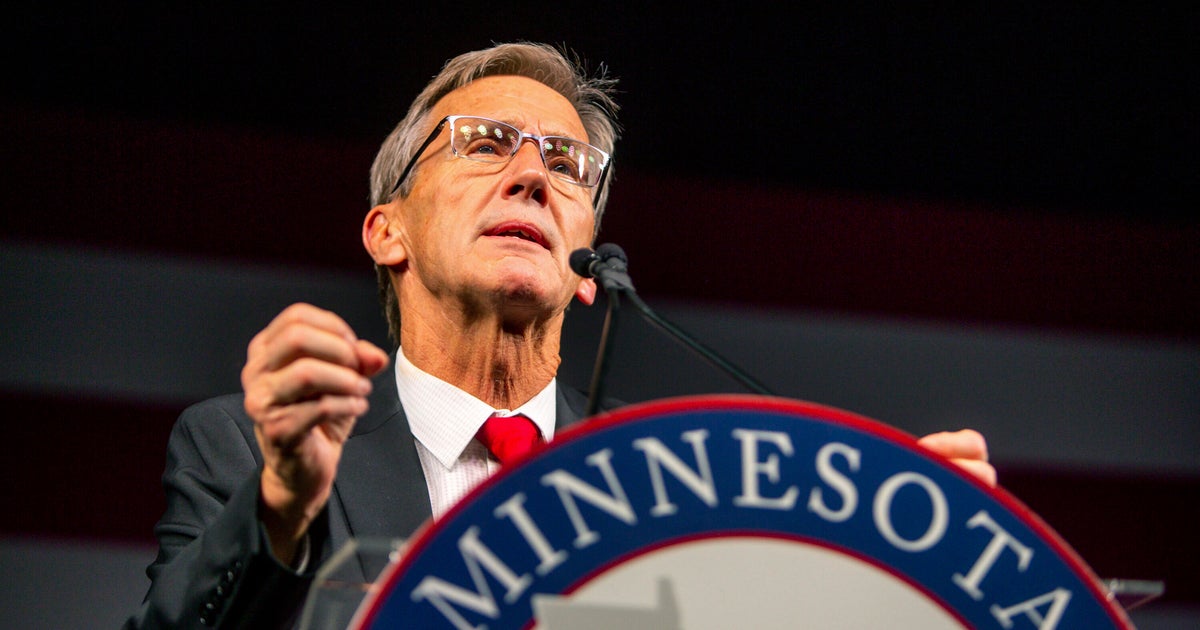Why was George Santos expelled from the House? Here are the charges and allegations against him
Washington — GOP Rep. George Santos of New York was expelled from the House in a bipartisan vote Friday, with dozens of his Republican colleagues joining Democrats in ousting him from Congress.
Santos has been the center of overlapping scandals since he won election last year, and he faces a slew of federal charges related to alleged fraud and campaign finance violations. The explosive allegations were detailed in a pair of federal indictments handed down earlier this year, and the House Ethics Committee issued its own scathing report earlier this month.
Santos refused repeated calls for his resignation and survived two prior attempts to remove him from office. The first attempt was led by Democrats in May after he was originally indicted by the Justice Department. Republicans renewed the expulsion effort in October following a superseding indictment. But Friday's vote of 311 to 114 made clear that his support among many of his Republican colleagues had eroded.
Here's what to know about the allegations against Santos that led to his expulsion:
The charges and allegations against Santos
Soon after Santos won a surprising victory in the 2022 midterm elections, media outlets began uncovering a multitude of lies he told about his life story, kicking off months of public scrutiny of his background.
His campaign also attracted the attention of federal prosecutors. On May 10, the Justice Department announced 13 federal charges against him, including wire fraud, money laundering, theft of public funds and making false statements to Congress.
The charges stemmed from "fraudulent schemes and brazen misrepresentations" that were meant to enrich Santos as he ran for Congress, said the U.S. attorney for the Eastern District of New York, Breon Peace.
The indictment outlined three schemes that Santos was allegedly involved in.
Prosecutors said Santos defrauded campaign donors by inducing them to contribute to a limited liability company that he controlled, and then used the money for his personal expenses, including on luxury designer clothing, credit card payments and car payments.
In the second scheme, Santos applied for unemployment insurance benefits from New York state in the early days of the COVID-19 pandemic, according to the indictment. Santos falsely told labor officials he was unemployed, even though he was earning about $120,000 a year from a Florida-based investment firm, the indictment said.
Prosecutors also alleged Santos misled Congress about his financial circumstances on disclosure statements he filed as part of his congressional campaigns.
In October, prosecutors hit Santos with an additional 10 counts that accused him of conspiracy to commit offenses against the U.S., wire fraud, making false statements to the Federal Election Commission, falsifying records, aggravated identity theft and access device fraud.
In total, Santos is charged with:
- one count of conspiracy to commit offenses against the United States
- two counts of wire fraud
- two counts of making materially false statements to the Federal Election Commission
- two counts of falsifying records submitted to obstruct the FEC
- two counts of aggravated identity theft
- one count of access device fraud
- seven counts of wire fraud
- three counts of money laundering
- one count of theft of public funds
- two counts of making materially false statements to the United States House of Representatives
In the second indictment, prosecutors accused Santos of stealing his campaign donors' identities and racking up thousands of dollars in unauthorized charges on their credit cards to benefit his campaign and himself personally. Some of the money was transferred to his own bank account, prosecutors said.
The superseding indictment also accused him of falsifying campaign finance reports in order to hit fundraising benchmarks and bolster his campaign, while falsely claiming he had loaned his campaign $500,000.
Santos has pleaded not guilty to all of the charges. His trial is set to begin in September.
The House Ethics Committee report
The Ethics Committee released a 56-page report on Nov. 16 after a monthslong investigation that uncovered similar allegations as the indictments.
Investigators said Santos allegedly stole money from his campaign, reported fictitious loans, deceived donors and engaged in fraudulent business dealings.
The report detailed "substantial evidence" of the congressman funneling campaign funds to cover personal expenses, including at luxury retailers, on cosmetic procedures and on travel.
Examples include: $4,127 at Hermès; "smaller purchases" at OnlyFans, a website that hosts adult content, and makeup store Sephora; $6,000 at Ferragamo; nearly $3,000 on Botox; and $3,332 for an Airbnb, when Santos was "off at [the] Hampton's [sic] for the weekend."
It also outlines Santos' long list of lies about his career and education.
"Representative Santos' congressional campaigns were built around his backstory as a successful man of means: a grandson of Holocaust survivors and graduate from Baruch College with a Master's in Business Administration from New York University, who went on to work at Citi Group and Goldman Sachs, owned multiple properties, and was the beneficiary of a family trust worth millions of dollars left by his mother, who passed years after the 9/11 terrorist attacks as a result of long-term health effects related to being at one of the towers," the report said. "No part of that backstory has been found to be true."
The report said members of Santos' campaign viewed him "as a 'fabulist,' whose penchant for telling lies was so concerning that he was encouraged to seek treatment."
The expulsion resolution
House lawmakers voted for a third time on a resolution to remove Santos from Congress on Friday. The first two attempts came before the Ethics Committee released its report, and several more Republicans indicated they would now support ousting him given the panel's findings.
For his part, Santos had said he will not seek reelection but remained defiant, accusing his fellow lawmakers before Friday's vote of rushing to expel him despite the fact that he has not been convicted of any crimes.
"It is a predetermined necessity for some members in this body to engage in this smear campaign to destroy me. I will not stand by quietly," he said on the House floor on Thursday. "They want me out of this body. The people of the 3rd District of New York sent me here. If they want me out, they have to go silence those people."
He walked out of the House chamber before the end of Friday's vote. His expulsion takes effect immediately.




